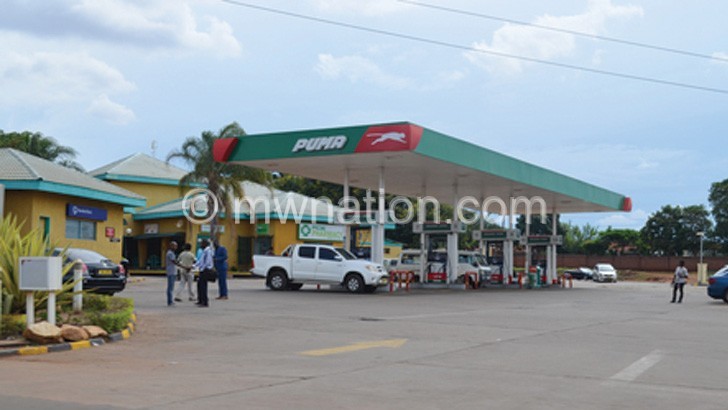Mera explains fuel price cut
Malawi Energy Regulatory Authority (Mera) says Saturday’s reduction in fuel pump prices is a “mixture” of both a presidential directive and the traditional pricing trends that determine the country’s fuel prices
In an interview in Lilongwe on Sunday, Mera chief executive officer Collins Magalasi said the authority was already set for its scheduled monthly price review meeting next week to effect a fuel price cut, but the meeting was fast-tracked “because of circumstances we are in”.

He said: “It’s a mixture of the two. The two are not different because ideally, we were going to review prices in the second week. We were going to meet on Wednesday next week, as you know we meet every month…
“What has happened is that we have met earlier because of circumstances and having met, we have used our formulae and mechanisms [and all that] for us to determine the new prices.”
In his national address in which he outlined new measures to fight the coronavirus on Saturday night, President Peter Mutharika directed Mera to reduce fuel prices with immediate effect to ease the public transport costs.
Public transport operators last week raised bus fares by up to 100 percent in reaction to restrictions on passenger capacity imposed as a measure to encourage social distancing and check the spread of Covid-19.
Barely minutes after Mutharika’s statement, Mera announced the reduction in pump prices, stating that it had considered recent trends in the world petroleum products prices and also changes in other macroeconomic fundamentals on the local market and their impact on energy prices.
In March 2020, freight on board (FOB) price of petrol, diesel and paraffin decreased by 45.6 percent, 34.1 percent, and 40.9 percent, respectively, when compared to FOB prices which were applied when determining the ruling prices.
On why Mera has reduced fuel prices by an average of 13 percent when the commodity’s price has slumped by an average of 40 percent, Magalasi said that fuel pricing is not only dependent on the cost of purchasing the commodity. He said there are other factors at play.
He said: “When we are doing price adjustments, we don’t just copy the international price. There are several other factors that we consider.
“The price is a product of so many things like the cost of buying fuel, the cost of transportation, insurance and cost of finance.
“It doesn’t mean that when the price at the international market has gone down by say 50 percent, then we will also reduce fuel price by the same 50 percent.”
Pump price adjustments continue to be based on the Automatic Pricing Mechanism (APM) re-adopted in May 2012. The prices reflect changes in the value of In Bond Landed Cost (IBLC) of petroleum products and movements of the Kwacha against the United States Dollar.
The global outbreak of coronavirus (Covid-19) has left global oil prices tumbling as travel restrictions across the global intensify, leaving the global market with an oversupply situation against strained demand for the commodity.
Saturday’s fuel price cut has seen the price of petrol reduced from K930 to K780, representing a 16 percent reduction, while the price of diesel has been reduced to by 14 percent from K887 to K765.On one hand, the price for paraffin has seen a reduction of about 10 percent to K625 from K693.60.





